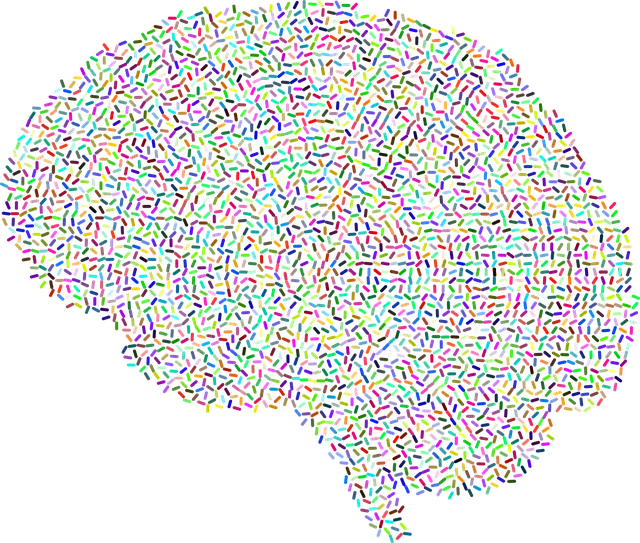The growing demand for accessible mental health support has led to a market shift towards digital solutions like mental wellness apps, as highlighted by Kaiser Permanente's behavioral health services reviews. These apps offer evidence-based practices such as depression prevention and mindfulness exercises to improve mental health awareness and resilience. Key features should include intuitive interfaces, diverse stress reduction methods, crisis intervention guidance, and self-care routine development tools. Integrating these apps into healthcare systems like Kaiser Permanente ensures digital interventions complement traditional therapies, fostering a holistic approach to conditions like anxiety and depression while enabling continuous monitoring and refinement for maximum impact.
In today’s digital age, mental wellness apps are gaining prominence, offering accessible support to those seeking emotional well-being. This article explores the growing importance of these applications, particularly in the context of established healthcare providers like Kaiser Permanente. Through a market analysis focusing on Kaiser Permanente’s Behavioral Health Services reviews, we uncover the demand for innovative solutions. We delve into developing effective apps with key features and user experience considerations based on golden standards, and present implementation strategies, using Kaiser Permanente as a compelling case study.
- Understanding the Need for Mental Wellness Apps: A Market Analysis with a Focus on Kaiser Permanente's Behavioral Health Services Reviews
- Developing Effective Mental Wellness Apps: Key Features and User Experience Considerations Based on Golden Standards
- Implementing and Measuring Success: Strategies for Integrating Mental Wellness Apps into Healthcare Systems, Using Kaiser Permanente as a Case Study
Understanding the Need for Mental Wellness Apps: A Market Analysis with a Focus on Kaiser Permanente's Behavioral Health Services Reviews

The need for mental wellness apps has never been more evident, as highlighted by organizations like Kaiser Permanente through their behavioral health services reviews. These reviews underscore the growing demand for accessible and effective mental health support, especially in light of increasing mental health challenges globally. According to Kaiser Permanente’s findings, many individuals face barriers to traditional therapy, such as cost, availability, and stigma, driving a market shift towards digital solutions.
Mental wellness apps offer a promising avenue for improving Mental Health Awareness and building Resilience among users. By focusing on features like depression prevention strategies, mindfulness exercises, and personalized coaching, these applications can significantly contribute to individuals’ overall well-being. The Golden standard for such apps should be evidenced-based practices, ensuring their efficacy in addressing common mental health concerns while promoting healthy coping mechanisms.
Developing Effective Mental Wellness Apps: Key Features and User Experience Considerations Based on Golden Standards

Developing mental wellness apps that truly promote effective behavioral health services requires a thoughtful blend of technology and human understanding. Based on established golden standards, key features should include accessible and intuitive user interfaces designed to foster comfort and engagement. Apps should offer a variety of stress reduction methods, from guided meditations to mindfulness exercises, catering to diverse preferences for relaxation techniques. Incorporating crisis intervention guidance is also crucial, providing users with tools to navigate sudden emotional distress and seek support promptly.
Beyond coping mechanisms, these platforms must prioritize user experience by enabling self-care routine development for better mental health. This could involve tracking mood patterns, setting personalized goals, and receiving regular reminders to maintain consistent healthy habits. Leveraging the success of Kaiser Permanente behavioral health services reviews, app developers can integrate evidence-based practices that have proven effective in improving users’ overall well-being, much like how these reviews guide improvements in traditional healthcare services.
Implementing and Measuring Success: Strategies for Integrating Mental Wellness Apps into Healthcare Systems, Using Kaiser Permanente as a Case Study

Implementing and measuring success in mental wellness app development requires strategic integration into established healthcare systems, such as Kaiser Permanente, known for its comprehensive behavioral health services reviews. By aligning with organizations like Kaiser, developers can ensure their apps complement existing care models, enhancing access to mental health support. This collaboration fosters a holistic approach, combining digital interventions with traditional therapies, which has proven effective in treating conditions like anxiety relief and depression prevention.
Kaiser Permanente’s commitment to mental illness stigma reduction efforts further highlights the potential of these partnerships. Integrating mental wellness apps into healthcare systems allows for continuous monitoring and evaluation, enabling developers to gather valuable data on user engagement and treatment outcomes. This feedback loop is essential for refining app functionalities, ensuring they remain relevant and impactful in addressing various mental health concerns.
Mental wellness apps have emerged as a powerful tool in addressing the growing need for accessible and personalized mental healthcare. As evidenced by the Kaiser Permanente behavioral health services reviews, these applications can significantly improve patient outcomes and satisfaction. By focusing on key features outlined in the golden standards and implementing successful integration strategies, such as those used by Kaiser Permanente, developers can create effective mental wellness apps that enhance user experiences and contribute to a healthier, more supportive digital landscape.






